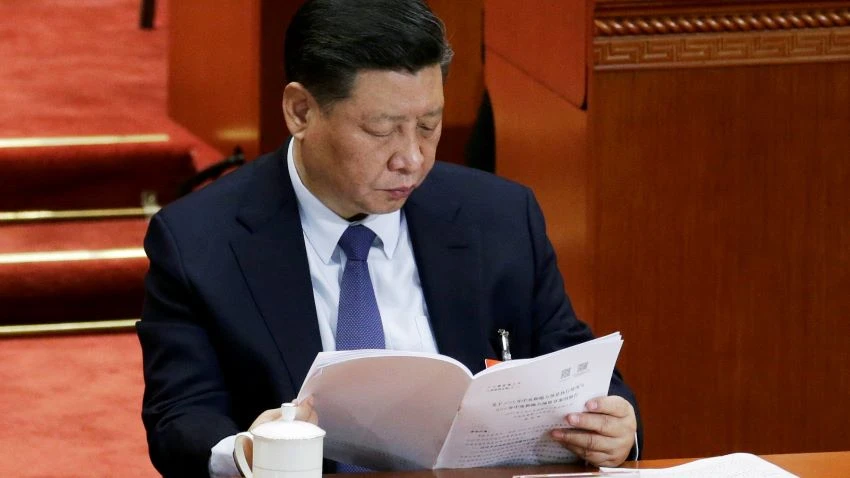
China's economic growth rate could drop to 1.7% by the 2030s without reforms to address the country's misallocation of resources, warns a report released Tuesday by the World Bank and a government think tank.
"After nearly four decades of rapid growth, China has entered a new normal of slower growth," said the opening sentence of the "Innovative China" report.
Noting that China's old drivers of growth are "running out of steam," the report said that the country can no longer rely on a growing labor force, the expansion of manufacturing, migration from rural areas to cities, expanding exports, and opening to foreign investments.
Instead, China needs to focus on "continuous productivity growth," it said. The consequences of failing to adapt to the new realities will be significant, the authors suggested.
Gross domestic product growth, which was 6.6% in 2018, would come to 4% in the 2020s and 1.7% in the 2030s if only limited reforms were undertaken, the report calculated.
With moderate reforms, meanwhile, average annual growth would reach 5.1% in the 2020s, then 2.9% in the 2030s.
Under bolder reforms, growth averages 5.1% in the 2020s and 4.1% in the 2030s. But even this most optimistic scenario has been downgraded from the future painted in the 2012 report, which expected 5.9% growth for the 2021-2025 period and 5% for 2026 to 2030.
The new report notes that China's total factor productivity -- which gauges how efficiently capital and labor are used together -- is about half the level of developed countries. Growth in this metric has slumped since the global economic crisis of a decade ago, according to the report.
To increase productivity, the report recommends "reforms of financial, labor, and land markets."
To improve labor mobility, the report advocates overhauling the household registration system that prevents migrants to cities from accessing public services. It also calls for "ensuring fair competition" between state-owned and private-sector enterprises.
China should promote not only innovation, but also the adoption of advanced technology in the economy, the report says.
Tuesday's report is the fruit of a two-year joint study by the World Bank and the Development Research Center of the State Council. It follows up on the "China 2030" report released in 2012.
The old report, released toward the end of Hu Jintao's time as Chinese president, embraced strong market-based reforms. The current one, published on the watch of current President Xi Jinping, backtracks on reforming state-owned enterprises.
Arguing that public resources are solely for "public goods and services" like defense and social spending, the 2012 report recommended shrinking the state sector through such steps as gradually cutting the government's stakes. Tuesday's report declares that state companies "are at the core of the coexistence between the state and the market" and will "retain an important role in China's economy."
One author of the new report admitted to Nikkei that it was difficult to mention scaling down state-owned enterprises when Xi repeatedly declares his goals of making state capital stronger, better and bigger.
This sentiment was echoed Tuesday when the "Innovative China" report was announced.
"How do we make 'Innovative China' into a reality?" Vice Finance Minister Zou Jiayi asked. "First, it is important to continue to resolutely demonstrate the superiority of socialism with Chinese characteristics."
In the nearer term, JPMorgan expects China's growth to slow to 5.8% next year and decline further to about 4.5% before 2030.
"We think over the next 10 years China's growth will slow to about 4.5%," said Joyce Chang, chair of global research at JPMorgan, at a Monday event in New York, adding that this forecast is an optimistic one.
"When China slows down, the rest of the world slows down as well, particularly in the emerging markets," Chang continued. Each percentage point drop in Chinese growth will take off more than 1 point of the growth of commodity-heavy Latin America, 0.6 in Europe and 0.2 in the U.S., she estimated.
On a possible Japanification scenario in China, Chang expressed worries about China's level of debt and the difficulty that creates for implementing more stimulus. Moreover, "we're not seeing signs that [the fiscal stimulus has] really worked," she said.




















